A very thoughtful question came into Ask Gardenerd this week:
“I’m new here. So far my big challenge is getting started. I do have a
question. I do want to eat organic. Let’s say I get a small plant,
like an herb, from Home Depot or a similar store, I plant it and grow it
organically with no man-made chemicals are pesticides. Does that make
the plant organic? Is it kind of organic? If I keep it growing
year-after-year and grow it organically, will it ever be truly
organic? –Stewart”
I hear this question all the time Stewart, so you’re not alone in wondering. Let me start by saying that my answer here is geared toward the home gardener, not the organic farmer who has a stringent set of rules to follow in order to keep up their organic certification.
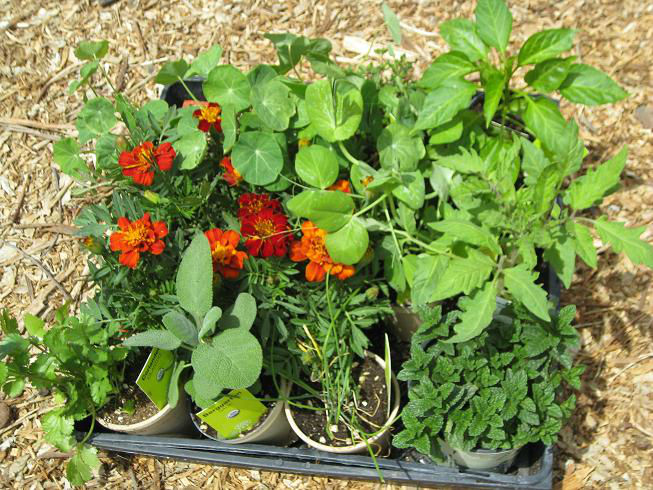
When you buy a plant from a nursery, it most likely has not been grown organically. The tell-tale sign of this is found in the soil: little blue/green beads of synthetic fertilizer. It’s in almost all nursery stock (except for a few nurseries that carry their own line of organic plants – like Armstrong Garden Centers). Technically speaking, that fertilizer will break down over time, but it could take a few months. I’ve found those beads in my soil long after the plants were gone.
So if you use organic methods to plant and care for your herbs and veggies, over time they will become more organic. How long depends on many factors – soil, drainage, etc.
Buying from a nursery is often the only option that many people have, and I feel that it’s a great starting point for beginners. Nurseries provide tried and true varieties that give new gardeners a head start. There’s nothing wrong with that.
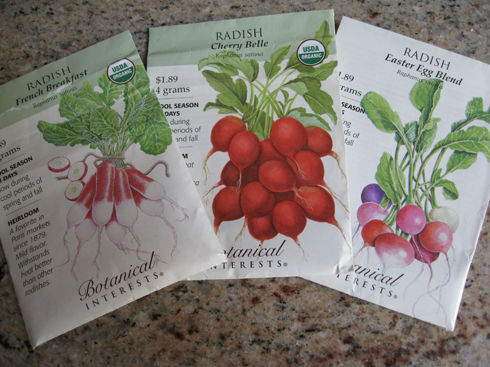
As you get more involved and experienced in growing your own food, I do encourage you to try growing things from seed. That way you can control the environment and inputs (amendments and fertilizers) for your plants. You can choose to grow open pollinated and heirloom varieties from organically grown seed to make sure that the process is organic from start to finish.
For now, growing organically with a nursery transplant is still helpful and environmentally conscious. You have stopped the cycle of damaging your soil with pesticides and chemical fertilizers, and you’re obviously not ingesting the additional chemicals that would ordinarily be used as the plants grow to maturity.
Thanks for writing in, and keep those questions coming. Good luck with your new garden.
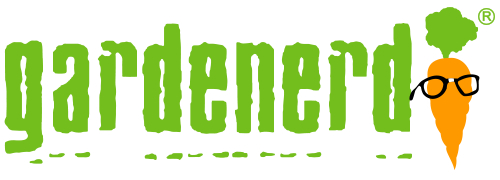
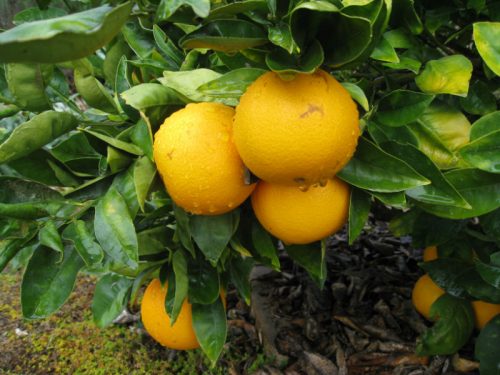
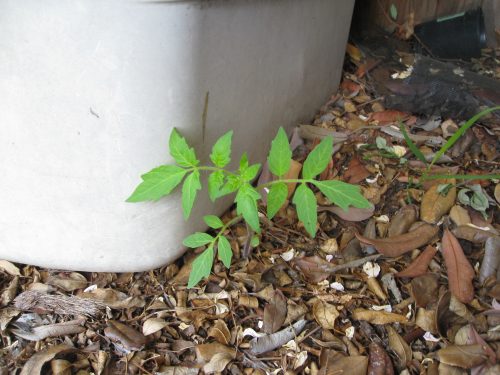
Thanks, Dan! You just validated my purpose.
Christi, this article reminds me that I very much appreciate your knowledge and the way you share it. You are such a good resource.